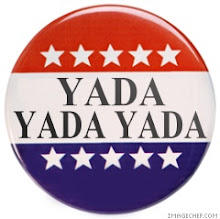You’d probably never have heard about Hannukah if it didn’t occur in December. Like Simchat Torah or Tu B'Shevat or Sukkot or Purim, it wouldn’t appear in the news and you wouldn’t find symbols or tokens of these holidays in airports and shopping mall atriums. It’s a celebration not nearly as important or seen as nearly so holy as the “high holidays” like Yom Kippur that sometimes get a passing mention.
Of course that dynasty came to an end, the Romans became the next occupiers and persecutors and the longing for another hero to come and install another Jewish king arose (and preferably one related to the house of David and Solomon rather than one of those half baked Hasmoneans.) The Messiah myth produced several failed attempts led by such people as David Bar Kochba and Joshua of Nazareth. All were disasters.
So until recently, celebrating Hanukah (however you prefer to spell it) was a bit like celebrating that one-run lead in the first inning long after the game was over and you lost – but then came the elevation of Christmas to an American commercial holiday.
20th Century Christmases are so powerfully seductive, with their long English and Nordic and Greco-Persian traditions to give romance to cruising the malls; with colored lights and catchy jingles, illuminated polystyrene images of flying arctic ungulates held over from the late Pleistocene and visions of iPods and Play Stations in children’s heads. Christmas has the entire might of the American economy behind it. It became torture to a Jewish kid whose parents chose to ignore Santa’s juggernaut, leaving them with some cheap plastic top, some foil wrapped chocolate coins, a box of cheesy looking candles and some mumbled prayers in a language few of us speak. It worried parents afraid of their children losing what they considered to be a Jewish identity. Ecce Haunukah, reborn and reshaped to look like Christmas without a tree.
Nothing says “Me Too” like a tin foil covered candelabra in Macy’s window or the
So to the idiots who see this travesty as a challenge to the ultimate victory of Christianist supremacy, I would suggest that imitation is the sincerest form of flattery and Santa vincit omnia.

3 comments:
But what's the deal with the curtain, incense and stuff, and a dark room? My mother-in-law was trying to explain it to me last night, but sometimes her English is a little questionable and I didn't really get it all...
In any case, I hope you had a happy holiday!
Pay no attention to the man behind the curtain. . .
yeah. colbert did a thing where he called chanukah a high holiday n struggled 2 pronounce the ch.
what curtain?
incense?
dark room?
huh?
allabest!
Post a Comment